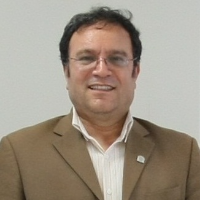Setting research priority in Shahid Beheshti University of Medical Sciences: methods, challenges, limitations
Diversity and complexity of health related issues along with the limitation of resources make research priorities setting inevitable. In this article we report the method, problems, limitations, barriers and outcomes of the project of setting research priority in Shahid Beheahti University of Medical Sciences.
This study involved 91 departments of eight schools and 830 stakeholders in 2009-10. There were five basic principles including stakeholders’ participation, situation analysis and need assessment, defining research priority topics, scoring according to the criteria, and defining priorities based on the most agreed topics. This was a modified version of the proposed model of “The Council on Health Research for Development” (COHRED).
The research priorities of 91 educational departments from schools of medicine, dentistry, pharmacy, nursery and midwifery, public health, nutrition, paramedical sciences, and rehabilitation were determined. 610 faculty members and 220 other health system stakeholders and health related persons outside the university were involved in this project. Finally 841 research fields and about 1900 sub-fields were defined as the research priorities.
It seems that the COHRED model is suitable for setting research priority in educational departments. We hope that research priorities lead researchers to design their proposals in accordance with the priorities and also act as a tool for policy makers to effectively manage limited resources.
-
Towards zero deaths: Developing the population laboratory of traffic in Kashan, a study protocol on reducing traffic accidents and related deaths
Fatemeh Sadat Asgarian, Mojtaba Sehat *, Esmaeil Fakharian, Khadijeh Kalan Farmanfarma, Mohammad Aghajani, Alireza Razzaghi, Masoud Motallebi, Hormoz Zakeri, Reza Sakhaei, Nahid Chaharbaghi,
Archives of Trauma Research, Oct-Dec 2024 -
Gender-Based Driving Behavior Patterns in the Context of Iran: A Qualitative Study
Sanaz Sohrabizadeh, Arezoo Dehghani *, Davoud Khorasani-Zavareh, Ali Delpisheh, , Gholamreza Masoumi
Journal of Iranian Medical Council, Autumn 2024


